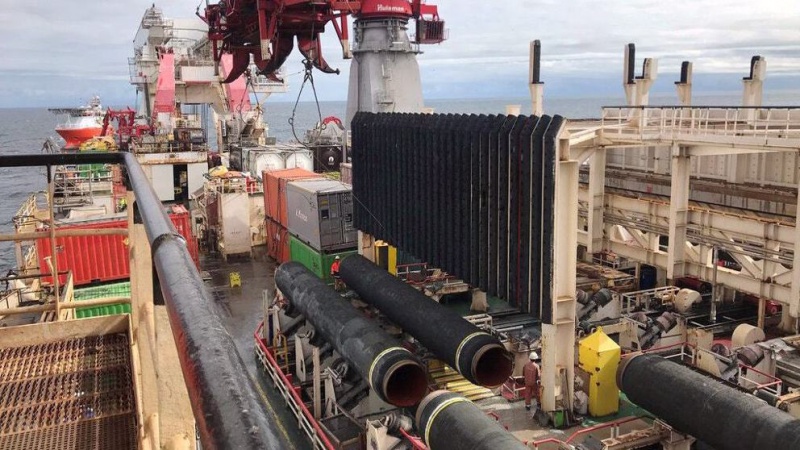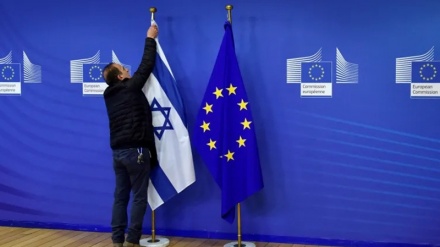US cranks up pressure on Europe over Russia pipeline projects
Risking a further escalation of tensions, the United States is increasing pressure on European contractors to drop out of Nord Stream 2 - a major Russian pipeline project that would transport gas to Europe under the Baltic Sea, according to a report.
In recent days, a dozen US officials from the Department of State, the Department of the Treasury and the Department of Energy have held video conferences with European contractors to underline their concern about the energy project, the German Die Welt newspaper reported on Saturday.
The officials signaled that they want to stop the completion of the $11.7 billion project, threatening representatives of the European companies with “far-reaching consequences” if they continue cooperating with it, the paper said.
On Tuesday, the US House of Representatives passed an amendment to the National Defense Authorization Act for the next fiscal year, which would expand sanctions against Nord Stream 2 and Turk Stream, another Russian pipeline project running oil pipelines through Europe to Turkey.
The Donald Trump administration is anxious the projects will boost Moscow’s economic and political leverage in Europe.
Last week, the State Department also moved to potentially expand economic penalties on investors and other business participants in Nord Stream 2, being built by a company owned by the Russian gas giant Gazprom.
The threat from Washington has drawn strong rebukes from European leaders, who called it interference in Europe’s sovereign right to set energy policy.
“The EU’s position on US sanctions against European companies that carry out legitimate and lawful activities under European law is unequivocal,” the EU’s foreign policy chief, Joseph Borrell, said in a written statement last month.
“They are unacceptable and contrary to international law, and the Union firmly opposes them,” he added.
The sanctions threat has created uncertainty about how Nord Stream 2, which is described as 94 percent complete, will go forward.
European business representatives say the dispute threatens to further sour the transatlantic alliance, which has already been strained under the Trump administration.
SS



